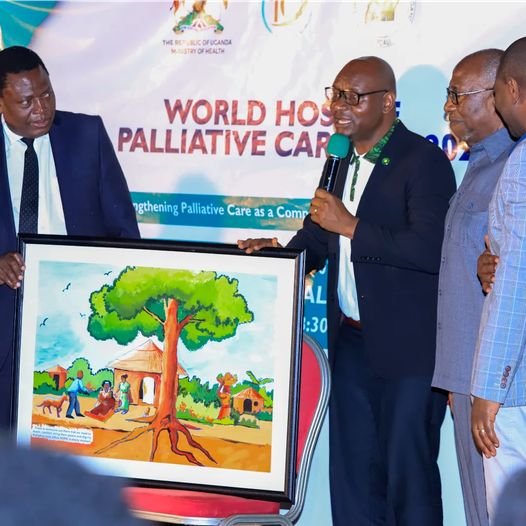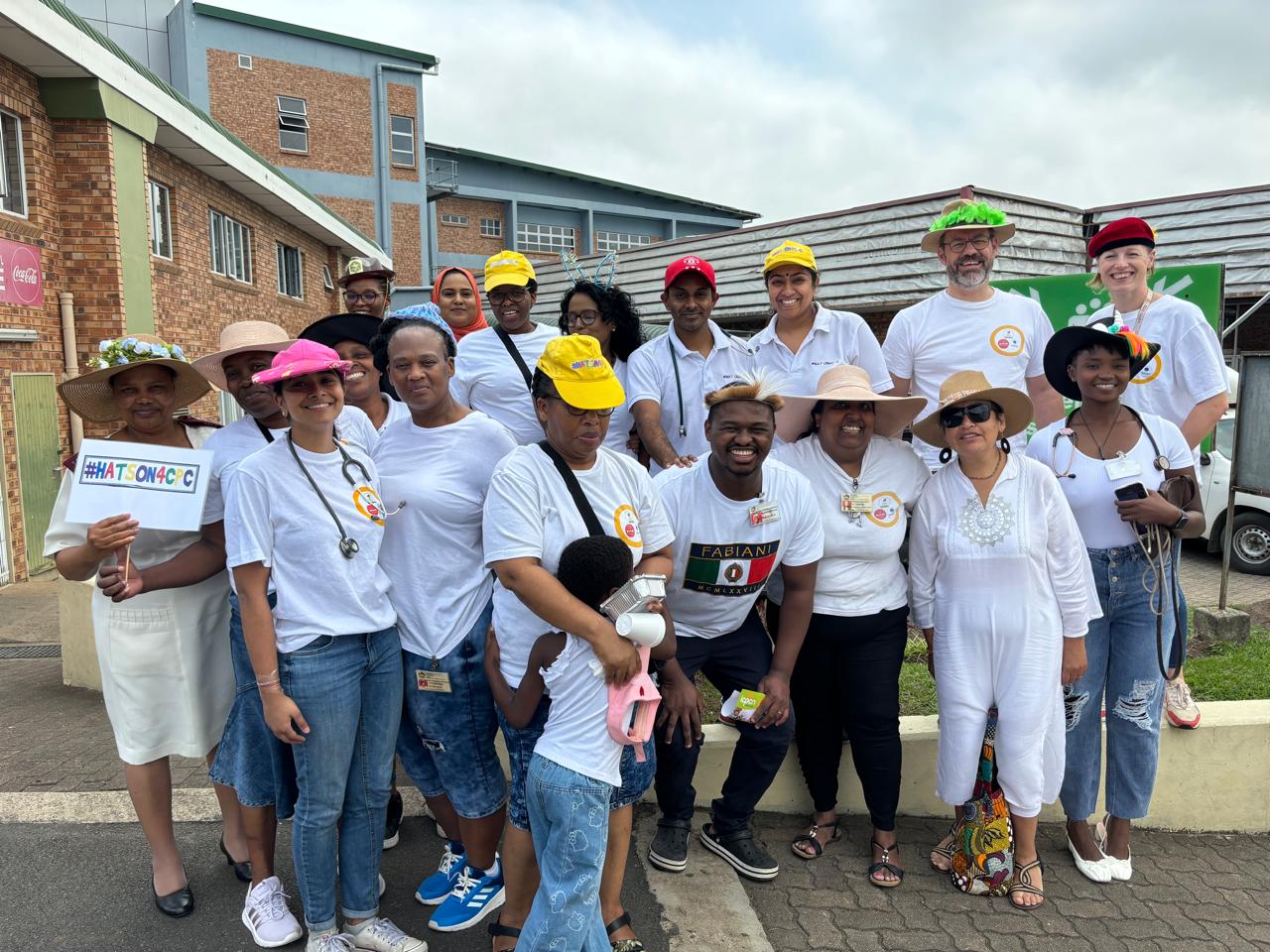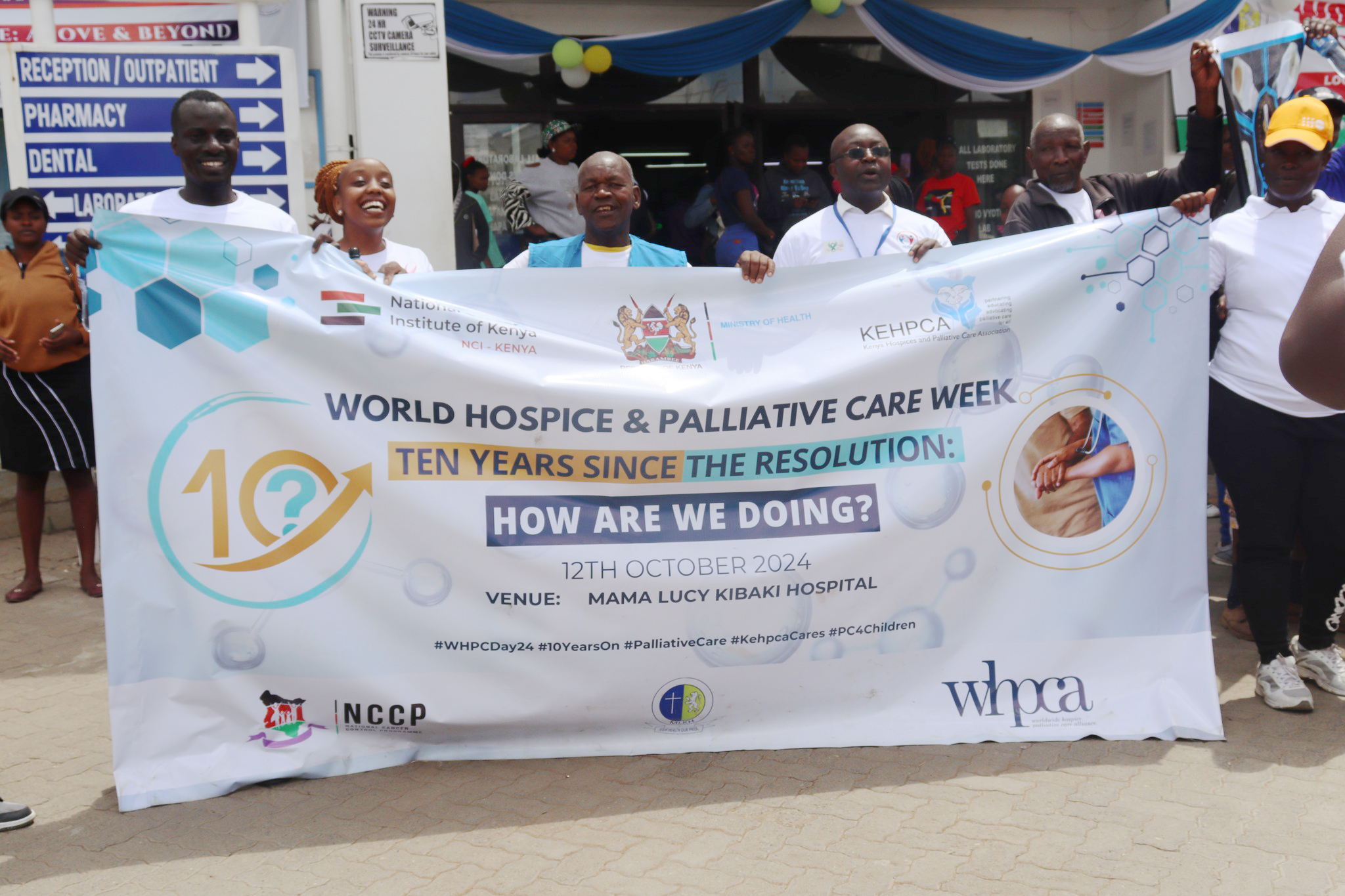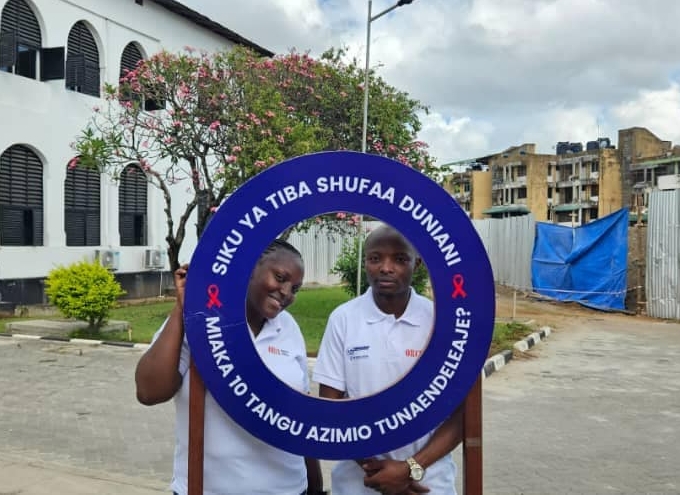This year’s theme for World Hospice and Palliative Care Day was “Ten Years Since the Resolution: How are we doing?” This annual event, held on the second Saturday in October, calls on the global community to recognize the importance of palliative care. National palliative care associations work tirelessly to advance palliative care in their countries. This year, they found creative ways to unite communities in raising awareness for palliative care.

PCAU Executive Director Mark Mwesiga calls attention to the growing need for palliative care in Uganda.
The Palliative Care Association of Uganda (PCAU) planned a series of events with the Ugandan Ministry of Health and key stakeholders across the country focused on strengthening palliative care access. First, they hosted a national webinar on the integration of palliative care into Ugandan hospitals. The webinar panelists represented Uganda Cancer Institute, Mulago National Referral Hospital and St. Francis Hospital Nsambya. Following this, PCAU hosted a storytelling event sharing about the impact of palliative care. Beneficiaries of palliative care, pioneers in the field and advocates told stories of how palliative care benefited them. As part of the event, Executive Director Mark Mwesiga shared the growing importance of palliative care due to Uganda’s rising incidence of non-communicable diseases and aging population.
The Ghana Palliative Care Association used October to develop their national strategic plan for palliative care. Through a series of webinars and in-person meetings, experts in the field reflected on lessons learned, shared feedback and coordinated to complete this robust framework. The month will end with the submission of this strategic plan to the Ghanaian Ministry of Health.
In South Africa, Palliative Care for Children South Africa (PatchSA) hosted a competition between organizations supporting children facing life-limiting conditions in South Africa. Organizations showed their support for children’s palliative care by wearing hats and sharing their celebrations on social media. At the end of the month, PatchSA will be hosting a fun 5km walk to raise awareness for the estimated one million children in need of palliative care in South Africa. The Association of Palliative Care Centres (APCC) called for communities to shop at their local palliative care charity shops. Recognizing the importance of charity shops in supporting palliative care across the country, the slogan for their campaign is “secondhand goods for first class care.”

PacthSA Chairperson Dr. Samantha Govender raises awareness for children’s palliative care alongside colleagues in Durban, South Africa.

KEHPCA staff walking hand in hand to advocate for the advancement of palliative care in Kenya.
Kenya Hospices and Palliative Care Association (KEHPCA) commemorated the occasion by hosting a palliative care week leading up to World Hospice and Palliative Care Day. Throughout the week they shared stories of palliative care developments from around the country. At the end of the week, KEHPCA joined a cancer awareness walk with partners in Nairobi. Following this, they hosted a national webinar on the state of palliative care in Kenya in collaboration with the national referral hospital. The Hospice and Palliative Care Association of Nigeria also hosted a celebratory webinar to reflect on the progress of the status of palliative care development in Nigeria. These webinars provided opportunities for country experts and the global community to reflect on progress made and lessons learned as they plan for the future.
Evangelical Lutheran Church of Tanzania (ELCT) Health hosted a national advocacy event to raise awareness for palliative care and thank their supporters at Ocean Road Cancer Institute. They took the opportunity to reflect on how they have collaborated with partners to provide palliative care to over 50,000 people in Tanzania through 24 hospital teams and 26 palliative care units.

ELCT Health staff pose for a photo at their national advocacy event.
Since this year’s theme asked the global community to reflect on palliative care development, national associations played a key role in leading this conversation. They brought together leading experts, governmental and non-governmental partners and those receiving palliative care to strategize on expanding access to palliative care in the years to come.
